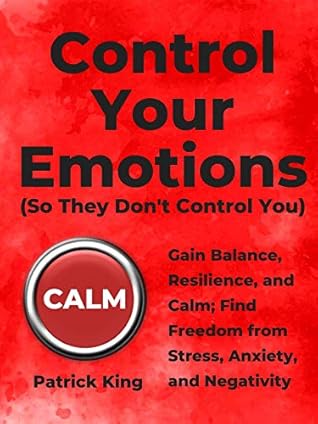Kindle Notes & Highlights
by
Patrick King
Read between
December 22 - December 22, 2019
Emotional granularity can have a large influence on your health and well-being because it equips your brain to handle a wider range of emotions that you may experience. In other words, by knowing what you’re feeling, you know better what the causes and underlying emotional needs are, and you know how to solve it.
Emotional strength and the ability to calmly withstand even the most unpleasant emotions is like a muscle: the more you exercise it, the stronger it gets. So be grateful for every opportunity you have to exercise it.
negative self-talk just makes you less resilient. The world is neutral, and our self-talk is what determines our emotions much of the time.
Higher self-esteem means that common psychological problems such as rejection, failure, anxiety, and stress are easier to cope with. Therefore, boosting our self-esteem will have an immediate effect on our emotional resilience.
And it’s been scientifically proven that gratitude is more or less a natural antidepressant. Thinking about or asking what you’re grateful for actually activates certain neural circuits that produce dopamine and serotonin, the neurotransmitters that regulate our pleasure centers and mood levels.
realizing that other people were worse off does not equal gratitude. Rather, gratitude is an appreciation of the positive aspects of your own situation.
the benefits of savoring—the mental and emotional act of appreciating a particular experience while you are currently engaging in it. It can be said to be gratitude in real-time.
Writing during times when we’re scared, angry, or upset might not be the first action you’ll think of taking, but it can go a long way in addressing your immediate emotional needs.


